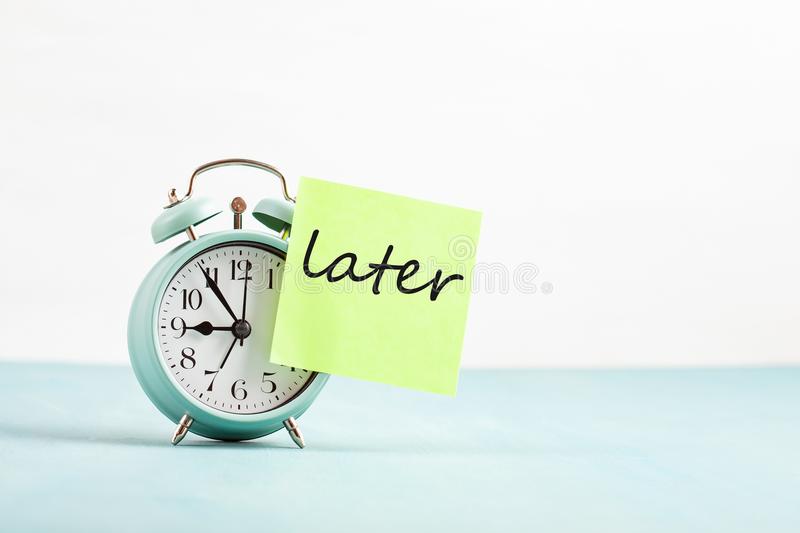The Akrasia Effect | How to Overcome Procrastination
Human beings have been procrastinating for centuries. Even prolific artists like Victor Hugo are not immune to the distractions of daily life. The universal problem of procrastination is so timeless, that ancient philosophers like Socrates and Aristotle developed a word to describe this type of behavior: Akrasia. Akrasia is what prevents you from following through on what you set out to do. With this article delight we get to know about The Akrasia Effect better and how to overcome that.
What is The Akrasia Effect ?
Akrasia about doing one thing, despite the fact that you should be doing something else, and you are aware of that. The Akrasia Effect is when you make a commitment to something but then keep finding other ways to fill your time instead of the thing you committed to. This is basically a cognitive bias, and it’s the concept that our human brain values a reward more highly that provides immediate gratification over a reward that we need patience for.
Examples of The Akrasia Effect
Examples of this might be laying down a plan to lose ‘x’ kgs of weight, or save ‘x’ amount of money, or be fluent in a new language. These are actually plans for future awards. But you won’t enjoy losing the weight at yoga class and avoiding your favorite sweet-treats. Thinking about it logically, it feels good to envision that future goal being achieved. However, when it comes to acting and making ‘’present moment’’ decisions, willpower might be lacking, and akrasia appears.
Psychology behind Akrasia | Why do we Procastinate?
It all starts when Socrates enquires how it is possible that if a person knows that action A is the best course of action, he/she will do anything other than that. Since then, a vast number of researches have been conducted to explain the human psychology behind Akrasia.
Our brains prefer instant rewards to long-term payoffs. It is simply a consequence of how our minds work. One explanation for why akrasia rules our lives and procrastination pulls us in has to do with a behavioral economics term called “time inconsistency.” Time inconsistency is the tendency of the human brain to value immediate rewards more highly than future rewards. So when the time comes to make a decision, you are no longer making a choice for your future self.
How to beat The Akrasia Effect | How to beat procrastination
Following are some steps to overcome akrasia, beat procrastination, and follow through on what you set out to do.
Stick to the commitment no matter what
Keep reminding yourself that present actions would bring the long term triumph if and only if you are truly committed to it and not distracted by short term gratifications. So make commitment methods such as that you have no choice but to remain committed to a future goal. Simply not purchasing junk food when you go to the grocery store is your present moment commitment tool. Your junk food cravings will now have nothing to munch on later that night. Put your alarm on the other side of your room. Now, when the alarm goes off, you have no choice but to get out of bed to switch it off.
Don’t Be so Hard on Yourself
Start off small and make very slow but steady gains. Beating akrasia is about getting 1% better consistently. The Japanese have a term for this slow and steady improvement, and they call it ‘Kaizen.’ Focus on building small achievable everyday habits, rather than looking at a big goal off in the distant future. Master the art of ‘showing up,’ and big goals will soon begin to appear on the horizon, and akrasia will cease to have a hold on you.
Reduce the friction of starting
Because it’s not being in the work that is hard, it’s starting the work. The friction that prevents us from taking action is usually centered around starting the behavior. Once you begin, it’s often less painful to do the work. In the words of Decision theorist, Eliezer Yudkowsky ( know more about him https://en.wikipedia.org/wiki/Eliezer_Yudkowsky ), “On a moment-to-moment basis, being in the middle of doing the work is usually less painful than being in the middle of procrastinating.”
Enkrateia Vs Akrasia
Aristotle coined the term Enkrateia as the antonym of Akrasia. While akrasia refers to our tendency to fall victim to procrastination, Enkrateia means to be “in power over oneself.” Designing your future actions, reducing the friction of starting good behaviors, and using implementation intentions are simple steps that you can take to make it easier to live a life of Enkrateia rather than one of Akrasia.
Final Takeaway
Akrasia is a genuine part of life. Even the most insanely self-disciplined people with iron willpower suffer from akrasia to some extent. So, what can we do about it? We can try above techniques and methods to cope with Akrasia and help us perform better in our daily personal or professional life. Do you have any others to add to this list? Let us know in comments !!
Read also : Talent Vs Hard Work ( https://thebrightdelights.com/talent-vs-hard-work-the-polgar-experiment/ )
